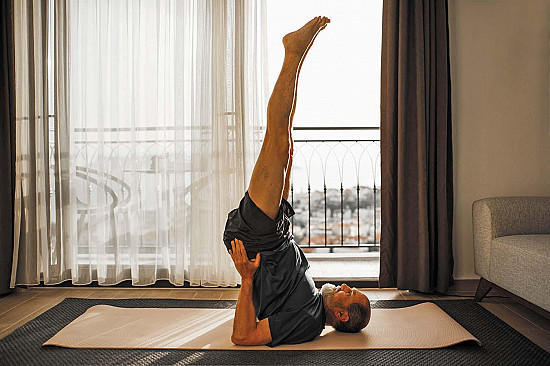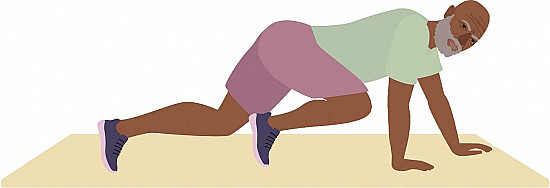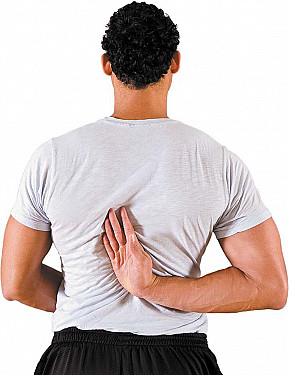The dangers of sitting

When you're in pain, it may be hard to make yourself get up and move. But consider this: A growing body of evidence suggests that spending too many hours sitting is hazardous to your health. Habitual inactivity raises risks for obesity, diabetes, cardiovascular disease, deep-vein thrombosis, and metabolic syndrome.
Researchers aren't sure why prolonged sitting has such harmful health consequences. But one possible explanation is that it relaxes your largest muscles. When muscles relax, they take up very little glucose from the blood, raising your risk of type 2 diabetes.
Sitting can also increase pain. Even if you're reasonably active, hours of sitting—whether reading a book, working on the computer, or watching TV—tighten the hip flexor and hamstring muscles and stiffen the joints themselves. Overly tight hip flexors and hamstrings affect gait and balance, making activities like walking harder and perhaps even setting you up for a fall. Plus, tight hip flexors and hamstrings may contribute to lower back pain and knee stiffness, scourges that many people suffer with every day.
Given the research, breaking up long blocks of sitting to flex your muscles seems like a wise move for all of us, so try to build more activity into your day. Set a timer to remind you to get up and move around every so often. Take your phone calls standing up. Try an adjustable standing desk for your computer. Instead of sitting in an armchair while watching TV, sit on a stability ball, which makes you use your muscles to stay upright. And, yes, do our joint pain relief exercises.
For more on developing and mastering joint pain relief workout, read The Joint Pain Relief Workout, a Special Health Report from Harvard Medical School.
Image: © shapechange/Getty Images
Disclaimer:
As a service to our readers, Harvard Health Publishing provides access to our library of archived content. Please note the date of last review or update on all articles.
No content on this site, regardless of date, should ever be used as a substitute for direct medical advice from your doctor or other qualified clinician.















